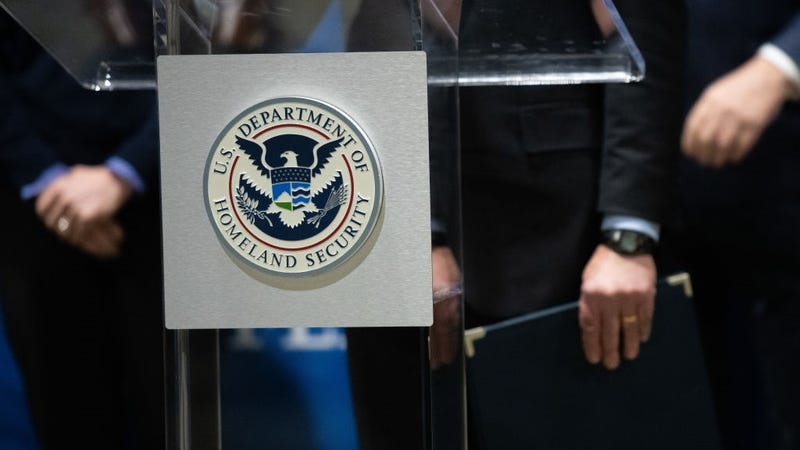
The U.S. Department of Homeland Security issued a National Terrorism Advisory System Bulletin on Tuesday in relation to the heightened threat environment in the country with a number of high-profile events over the next six months.
The DHS cited the U.S. Supreme Court decision that could overturn Roe v. Wade, increased numbers of migrants at the U.S.-Mexico border, and midterm elections as reasons that could justify extremist violence.
"In the coming months, we expect the threat environment to become more dynamic as several high-profile events could be exploited to justify acts of violence against a range of possible targets," the DHS said. "These targets could include public gatherings, faith-based institutions, schools, racial and religious minorities, government facilities and personnel, U.S. critical infrastructure, the media, and perceived ideological opponents.
"Threat actors have recently mobilized to violence due to factors such as personal grievances, reactions to current events, and adherence to violent extremist ideologies, including racially or ethnically motivated or anti-government/anti-authority violent extremism."
It's the sixth time the DHS has issued a National Terrorism Advisory System Bulletin since January 2021. This will replace the current NTAS Bulletin that was scheduled to expire on Tuesday at 2:00 p.m. ET., and the new Bulletin will end on Nov. 30.
Secretary of Homeland Security Alejandro Mayorkas explained the heightened threat environment and clarified how the DHS is planning properly provide safety information to the public.
"As recent acts of violence in communities across the country have so tragically demonstrated, the nation remains in a heightened threat environment, and we expect that environment will become more dynamic in the coming months," Mayorkas said. “The Department of Homeland Security remains steadfast in our commitment to provide timely information and resources to the American public and our partners across every level of government, in law enforcement, and in the private sector.
"This includes regular engagements with stakeholders to maintain awareness about the threat environment, trainings and online resources to help communities stay safe, increased sharing of information with law enforcement partners, and millions of dollars in grant funding opportunities for communities and organizations to enhance security and advance prevention efforts."
The DHS went on to give examples of recent violent attacks that show the dynamic and complex threat environment in the country, including the racially motivated shooting in May at a supermarket in Buffalo, New York in which a white gunman killed 10 Black people.
The news release then said that false and misleading conspiracy theories could inspire violent attacks. In relation to border security, the DHS warns about racial extremists that could be motivated if changes to Title 42 occur.
"Some domestic violent extremists have expressed grievances related to their perception that the U.S. government is unwilling or unable to secure the U.S.-Mexico border and have called for violence to stem the flow of undocumented migrants to the United States," the DHS said.
"We assess that there is increased risk of domestic violent extremists using changes in border security-related policies and/or enforcement mechanisms to justify violence against individuals, such as minorities and law enforcement officials involved in the enforcement of border security."
The DHS added that the U.S. Supreme Court case that could overturn Roe v. Wade is another event that could cause violence from individuals.
"Given a high-profile U.S. Supreme Court case about abortion rights, individuals who advocate both for and against abortion have, on public forums, encouraged violence, including against government, religious, and reproductive healthcare personnel and facilities, as well as those with opposing ideologies," the DHS said.
Domestic violence directed at political candidates, election events, and election workers in relation to the midterm elections are expected to increase, the DHS added.
To protect against extremist violence, the DHS and FBI will continue to work together by sharing information with all state and local authorities. The DHS said that it "remains committed to working with our partners to identify and prevent all forms of terrorism and targeted violence, and to support law enforcement efforts to keep our communities safe.


